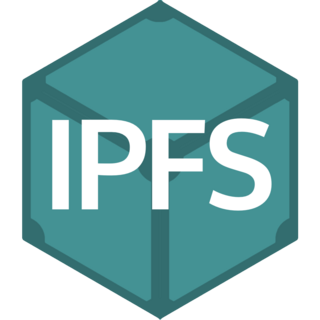
Block, Inc. is a U.S. listed company founded by Jack Dorsey and Jim McKelvey in 2009. It is a financial technology conglomerate. The company reportedly serves 56 million users and 4 million businesses, and processes payments worth US$228 billion annually as of 2023.
Litecoin is a decentralized peer-to-peer cryptocurrency and open-source software project released under the MIT/X11 license. Inspired by Bitcoin, Litecoin was among the earliest altcoins, starting in October 2011. In technical details, the Litecoin main chain shares a slightly modified Bitcoin codebase. The practical effects of those codebase differences are lower transaction fees, faster transaction confirmations, and faster mining difficulty retargeting. Due to its underlying similarities to Bitcoin, Litecoin has historically been referred to as the "silver to Bitcoin's gold." In 2022, Litecoin added optional privacy features via soft fork through the MWEB upgrade.
Distributed social network projects generally develop software, protocols, or both.

Twister is a decentralized, experimental peer-to-peer microblogging program which uses end-to-end encryption to safeguard communications. Based on BitTorrent- and Bitcoin-like protocols, it has been likened to a distributed version of Twitter.
Monero is a cryptocurrency which uses a blockchain with privacy-enhancing technologies to obfuscate transactions to achieve anonymity and fungibility. Observers cannot decipher addresses trading Monero, transaction amounts, address balances, or transaction histories.

Matrix is an open standard and communication protocol for real-time communication. It aims to make real-time communication work seamlessly between different service providers, in the way that standard Simple Mail Transfer Protocol email currently does for store-and-forward email service, by allowing users with accounts at one communications service provider to communicate with users of a different service provider via online chat, voice over IP, and videotelephony. It therefore serves a similar purpose to protocols like XMPP, but is not based on any existing communication protocol.

The InterPlanetary File System (IPFS) is a protocol, hypermedia and file sharing peer-to-peer network for storing and sharing data in a distributed file system. By using content-addressing, IPFS uniquely identifies each file in a global namespace that connects IPFS hosts, creating a resilient system of file storage and sharing.

Gridcoin is an open source cryptocurrency which securely rewards volunteer computing performed on the BOINC network. Originally developed to support SETI@home, it became the platform for many other applications in areas as diverse as medicine, molecular biology, mathematics, linguistics, climatology, environmental science, and astrophysics.

The Lightning Network (LN) is a "layer 2" payment protocol built on the Bitcoin blockchain and those of other cryptocurrencies. It is intended to enable fast transactions among participating nodes and has been proposed as a solution to the bitcoin scalability problem. It is a peer-to-peer system for making micropayments of cryptocurrency through a network of bidirectional payment channels, without delegating custody of funds.

The Bitcoin scalability problem refers to the limited capability of the Bitcoin network to handle large amounts of transaction data on its platform in a short span of time. It is related to the fact that records in the Bitcoin blockchain are limited in size and frequency.

ActivityPub is an open, decentralized social networking protocol based on Pump.io's ActivityPump protocol. It provides a client/server API for creating, updating, and deleting content, as well as a federated server-to-server API for delivering notifications and content.

The Open Network is a decentralized computer network consisting of a layer-1 blockchain with various components. TON was originally developed by Nikolai Durov and the messaging platform, Telegram and now embraced by a global community of independent contributors.

Secure Scuttlebutt (SSB) is a peer-to peer communication protocol, mesh network, and self-hosted social media ecosystem. Each user hosts their own content and the content of the peers they follow, which provides fault tolerance and eventual consistency. Messages are digitally signed and added to an append-only list of messages published by an author. SSB is primarily used for implementing distributed social networks, and utilizes cryptography to assure that content remains unforged as it is propagated through the network.

Avalanche is a decentralized, open-source proof of stake blockchain with smart contract functionality. AVAX is the native cryptocurrency of the platform.
Stacks, formerly Blockstack, is a blockchain platform for smart contracts, decentralized finance ("DeFi"), non-fungible tokens (NFTs), and decentralized apps ("DApps"). Stacks blockchain is a layer for bitcoin similar to the Lightning Network.

Bluesky, also known as Bluesky Social, is a decentralized microblogging social platform and a public benefit corporation based in the United States. Jay Graber serves as the company's CEO and XMPP creator Jeremie Miller sit on its board of directors.

Conversations is a free software, instant messaging client application software for Android. It is largely based on recognized open standards such as the Extensible Messaging and Presence Protocol (XMPP) and Transport Layer Security (TLS).

Lantian "Jay" Graber is an American software engineer and the CEO of Bluesky, a microblogging social platform and public benefit company.













